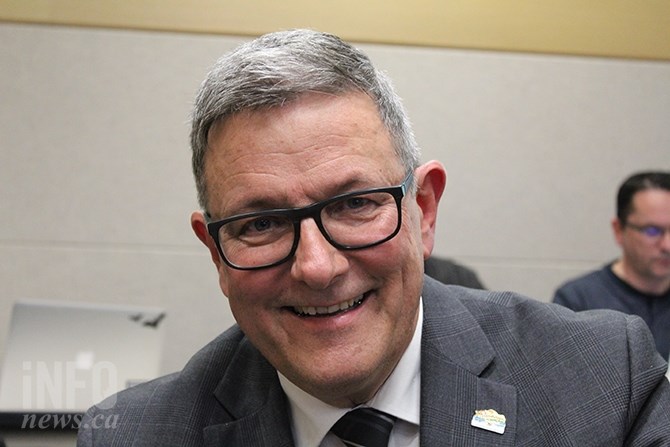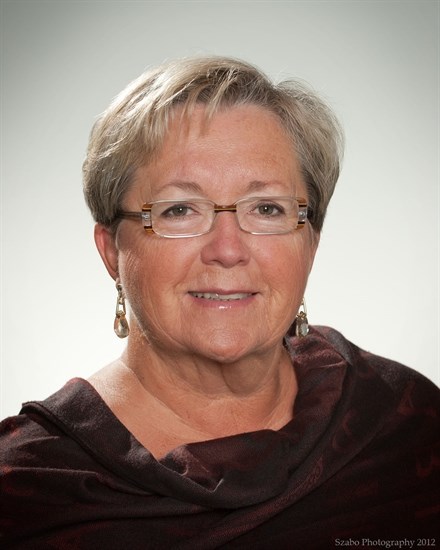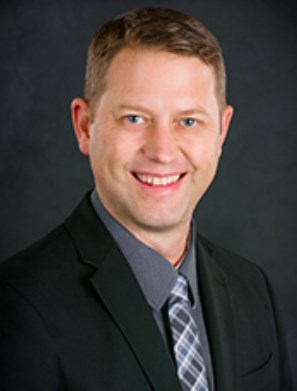
Outgoing Kamloops Mayor Ken Christian says there's lots local governments can do to battle crime.
(KAREN EDWARDS / iNFOnews.ca)
September 26, 2022 - 8:27 AM
Talk to any local politician about the issues of the day and crime tends to top their list.
They have much to say about the issue but little in the way of real solutions that local governments can actually implement.
Most of what is in campaign platforms leading up to the Oct. 15 municipal election actually boils down to three things: lobby, lobby and lobby.
iNFOnews.ca talked to three outgoing politicians to try to paint a picture of what actually can and is being done on the local level and viewed the websites of mayoralty candidates in some of the region’s largest cities to see what ideas are out there that might actually make a difference.
One common thread among the departing politicians is that local governments pay for RCMP officers and, therefore, city councils can vote to add more officers, which is done on an ongoing basis.
But they can’t tell police how to do their job.
“That’s a challenge for sure,” Penticton Coun. Judy Sentes, who is leaving after 14 years on council, told iNFOnews.ca. “They have a higher governance than us but, because we pay the bill, there is a willingness to have discussions with us and we can certainly state where the priorities are for us. So there’s a spirit of cooperation that does exist.”

Penticton Coun. Judy Sentes.
Image Credit: City of Penticton
Having a municipal police force may give more direct control over priorities through police boards. While that has been talked about in various circles at a “high level” it’s not under serious consideration.
“I think there’s a potential in this current system, if you didn’t have a relationship with the superintendent and RCMP locally that was respectful back and forth and all we did was sign cheques and they didn’t take feedback and run with it then, ultimately, council holds the budget over new hires and things like that, which is a bit of a blunt instrument,” Kelowna Coun. Brad Sieben, who is retiring from office after eight years on council, told iNFOnews.ca.
“If you had a situation where you were constantly battling with what you’re seeing on the street and not getting response from the RCMP then perhaps you could have more control with a municipal police force. But in my experience, especially over the last little bit, it’s been a very good relationship and the RCMP has been very responsive to what has been put forward.”
Kelowna RCMP, for example, initiated foot patrols on their own without being told to do so by council.
Another area where local government can be effective is in hiring and directing their own bylaw officers. That is no more evident than in Kamloops where they converted their bylaw officers to “community services officers” about a year ago.
“We’ve expanded it to 24/7 coverage and we have shifted focus away from barking dogs and parking tickets to street issues because that is the most important issue going on here,” retiring Mayor Ken Christian told iNFOnews.ca. “I feel it’s been really effective. If we didn’t have it, we would be in much worse shape than we are now.”
It hasn’t come without controversy.
The union is fighting the fact that some former bylaw officers who did not want to take on the new roles were either re-assigned or retired early. That’s scheduled for arbitration later this fall.
They had to have mental health, physical dexterity and technological training making them more like auxiliary police officers so they weren’t “simply sitting in the pickup truck writing tickets for parking violations,” Christian said.
One candidate to replace Christian, Reid Hamer-Jackson, has called for a “complete review” of that program.
While it’s fine to have officers and rules, it doesn’t do any good if they’re not enforcing those rules.
“We have to strengthen our consequences,” Sentes said. “We do have opportunities to enforce them and I really do believe we have to start being more aggressive with that.”
Hiring RCMP officers at $150,000 each, or even more affordably bylaw or community services officers, is an expensive option.
READ MORE: B.C. report on prolific offenders says hardline enforcement is not the answer
Just as costly is bringing on more municipal staff.
The City of Kelowna, in 2019, hired Darren Caul as its “community safety director” to ensure, for example, there is regular contact between City Hall and the RCMP, bylaws and service agencies.

Kelowna Coun. Brad Sieben
Image Credit: Submitted/City of Kelowna
“Eight years ago, there were definitely some on council – and I’ll be honest, rightfully so – who didn’t think we should make those hires since that’s a provincial responsibility,” Sieben said. “Crime, in a lot of ways, is covered by the criminal code. But, the perspective our group took over the last six years was, if we’re not leading the charge and trying to look after our own backyard on something that’s happening on our own streets, then waiting for the magic solution to come from the provincial or federal governments wasn’t going to happen.”
When talking to these outgoing politicians about what they can do on a local level, so much of the conversation turns to what really amounts to lobbying.
Each city, for example, wants to expand or initiate more mental health nurses on patrol with RCMP officers. Kamloops has gone so far as to allocate $200,000 for a car and officer.
READ MORE: Mental health support for B.C. inmates 'woefully inadequate': prolific offenders study
But getting that nurse on board comes down to Interior Health.
“Our local RCMP superintendent is advocating strongly for that and Interior Health Authority refuses,” Sentes said. “They do not feel there is adequate data to prove it's effective. We’re astounded by that attitude.”
Local politicians lobby hard for things like changes in Crown counsel rules for making criminal charges, cracking down on prolific offenders and getting more mental health and addiction services.
But those are provincial issues and people like Christian, for example, draw the line at the city hiring a nurse on its own.
That doesn’t mean there aren’t other things that can, and have been done.
On March 28, Christian published on the city’s website a long list of things that city has, or is doing.
That list includes:
-
Working with the school district to create anti-gang and anti-drug messaging.
-
Spending $75,000 to fund research at Thompson Rivers University on street issues and solutions.
-
Contributing $50,000 to support the Kamloops Chamber of Commerce with an anti-tagging, anti-graffiti program.
-
Providing the North Shore Business Association with $37,000 to clean up things like feces, garbage and needles in that neighbourhood.
-
Setting up a team working with Interior Health and service agencies to identify an individuals needs and where they can be directed for assistance.
-
Creating a “crime prevention through environmental design” team that works with businesses and residents who have persistent problems with break-ins or people camping in their alcoves and doorways.
-
Passing a bylaw prohibiting long-term camping along its riverbanks and setting up a team to patrol and clean up those areas.
When it comes to people who want to lead their cities, there’s a lot on the websites of mayoralty candidates about crime, but most of their solutions are vague aspirations or require successful lobbying of the RCMP, Interior Health or senior governments for things like mental health supports and treatment facilities.
“We need to become less reactive which is where we are now and more proactive,” Kamloops mayoralty candidate Dieter Dudy posted.
“The social issues we are experiencing are complex and will require a community solution,” posted Sadie Hunter who is running for mayor of Kamloops.
“My commitment to my children and my community is for real safety, not empty wishful promises,” wrote incumbent Kelowna Mayor Colin Basran.
“We keep hearing it’s the province’s problem to fix,” Tom Dyas, who is challenging Basran, wrote. “Leadership means taking action when others won’t - it’s time for action."
Still, hidden in all the rhetoric there are a couple of points that may help fight crime on the local level.
“More police presence and community services officers (formerly bylaw officers) are needed to patrol the streets.” – Ray Dhaliwal, Kamloops.
“Convene a Mayor’s Task Force on Community Safety and ask the task force for recommendations by end of January 2023.” – Arjun Singh, Kamloops.
"Create an RCMP community policing office at UBCO, create a Kelowna citizens patrol and meet weekly in-person with the Kelowna RCMP superintendent." – Tom Dyas, Kelowna.
“Support local anti-crime measures like enhanced security and community initiatives.” – Scott Anderson, Vernon.
— This story was updated at 11:03 a.m. Sept. 27, 2022, to delete comments made by Julian Bloomfield.
To contact a reporter for this story, email Rob Munro or call 250-808-0143 or email the editor. You can also submit photos, videos or news tips to the newsroom and be entered to win a monthly prize draw.
We welcome your comments and opinions on our stories but play nice. We won't censor or delete comments unless they contain off-topic statements or links, unnecessary vulgarity, false facts, spam or obviously fake profiles. If you have any concerns about what you see in comments, email the editor in the link above.
News from © iNFOnews, 2022